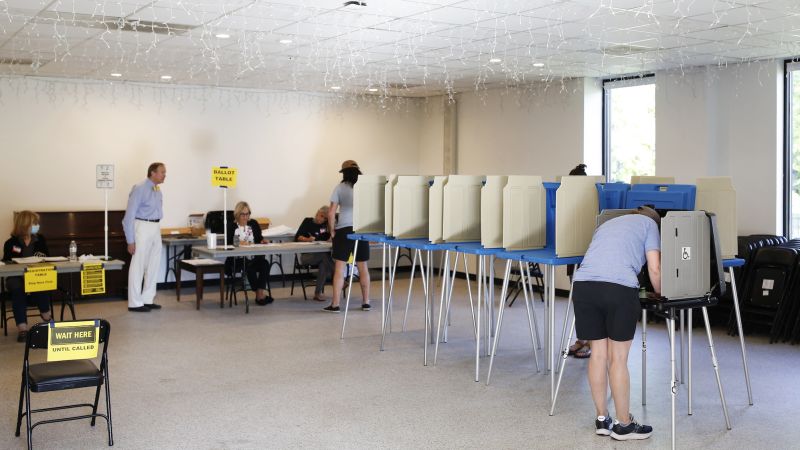

CNN
—
The North Carolina Supreme Court, which flipped to a Republican majority with last year’s elections, said Friday it would rehear a redistricting case and a voter ID case – cases that the state’s GOP legislature had lost when they were previously before the state’s highest court.
The redistricting case has since traveled to the US Supreme Court, where the justices have been weighing whether to hand down a far-reaching decision that would transform the authority state courts have to place limits on how state legislatures configure election rules. The US Supreme Court heard the redistricting case – Moore v. Harper – in December but is not expected to issue a decision until spring or early summer.
Legal experts say the North Carolina Supreme Court’s moves to grant a rehearing of the case, at state Republicans’ request, and to set a quick briefing schedule could potentially moot the blockbuster case before the US Supreme Court. No new legal briefs have been filed yet, but parties on both sides are carefully watching the issue.
The North Carolina court scheduled a March 14 hearing in its review. That sets up the possibility that it will hand down a decision reversing the ruling against the Republicans that had been appealed to the US Supreme Court, before that court has decided the case.
It is not yet certain that the legislators will ask the US Supreme Court to moot the case and whether the court would ultimately agree.
In the case, the state Supreme Court – when it was controlled by Democrats last year – struck down a North Carolina congressional map drawn by Republican legislators because, the court concluded then, it was a partisan gerrymander so egregious it violated the state constitution. The Republicans eventually took the case to the US Supreme Court, where they pushed an aggressive legal theory known as the independent state legislature doctrine. The most extreme versions of the theory argue that only a state legislature can set the rules for a federal election and those rules cannot be policed by state courts.
The case has garnered attention as the legal theory could have vast implications for elections going forward.
The second case the North Carolina Supreme Court agreed to rehear was a ruling from the court last year that struck down a GOP-passed voter ID law. The Democrat-majority court said at the time that the law was passed with the intention of discriminating against Black voters.
That case is also scheduled to be reheard by the state’s highest court on March 14.
